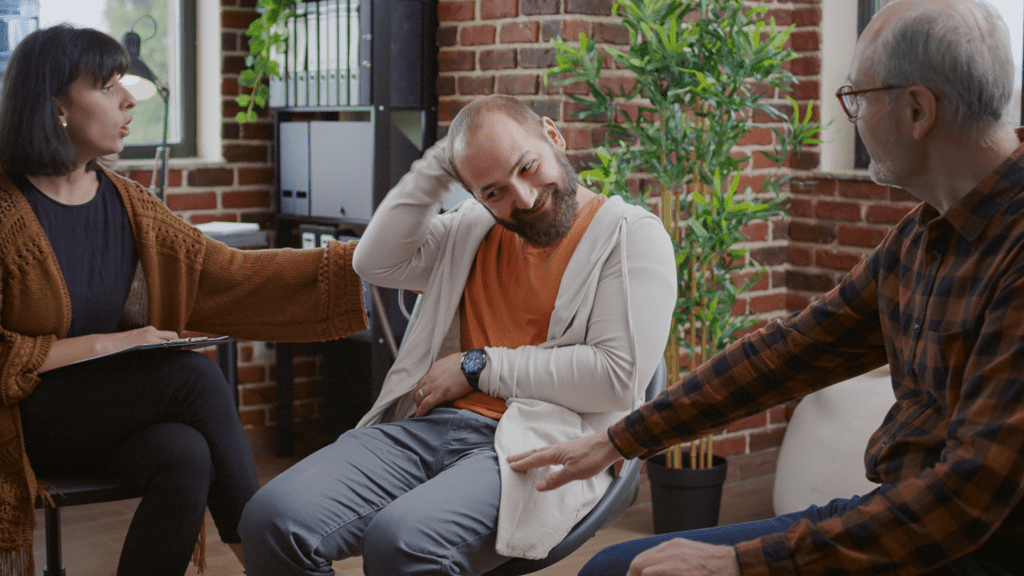Addiction recovery is the process of overcoming an addiction and achieving a state of sustained abstinence from drugs, alcohol, or other addictive substances. Recovery from addiction involves physical, psychological, and emotional healing, as well as changes in behavior and lifestyle.
Recovery from addiction is a highly individualized process that can look different for each person, depending on the type and severity of the addiction, personal circumstances, and other factors. The recovery process often involves a combination of interventions, including detoxification, therapy, counseling, medication-assisted treatment, and support groups.
The first step of drug treatment is important for individuals so they can begin to successfully overcome addiction and build a fulfilling, sober life.
The Importance of Drug Detox for Physical Drug Dependence
Individuals who experience physical drug dependence and decide to seek treatment often begin their addiction treatment with drug detox as the primary step. This process involves removing the drug from the body and managing withdrawal symptoms that may occur as a result. Although it can be difficult and uncomfortable, detoxification is a crucial phase in the recovery journey.
During drug detox, medical professionals will monitor the individual’s vital signs, manage withdrawal symptoms, and provide support and counseling to help them through the process. Withdrawal symptoms can vary depending on the drug being used and the severity of the addiction but may include nausea, vomiting, anxiety, agitation, and insomnia.
In certain situations, detox can be dangerous or even deadly. This is why it is so important for an individual who is physically dependent on drugs to seek treatment at a rehab facility. An inpatient rehab program can keep individuals safe and as comfortable as possible.
While drug detox is an important first step in addiction treatment, it is just one step in a longer process of recovery. Once detox is complete, it is important to continue with substance abuse treatment, which may include therapy, counseling, and support groups. To address the underlying causes of addiction and prevent relapse.
There are a few different types of drug detox programs, including:
- Medically Supervised Detox: This type of detox is done in a hospital or specialized detox center under the supervision of medical professionals. It is typically recommended for individuals who are at risk of experiencing severe withdrawal symptoms, such as those who have been using high doses of opioids or benzodiazepines.
- Outpatient Detox: Outpatient detox programs allow individuals to receive treatment while living at home. The approach can either utilize a gradual reduction of substance abuse or medications to alleviate withdrawal symptoms.
- Rapid Detox: Rapid detox is a relatively new approach that involves putting individuals under anesthesia while drugs are quickly removed from their system. This approach is controversial and not widely recommended, as it can be risky and is not proven to be more effective than other forms of detox.

What Are the Stages of Substance Abuse Treatment?
There are stages of treating people with addiction. These stages of treatment refer to the process that individuals go through when seeking addiction treatment. Some of these stages include:
Pre-contemplation
In this stage, the individual is not yet considering making a change in their substance use. They may not see their substance use as a problem or may not be aware of the negative consequences associated with it.
Contemplation
At this stage, the individual is beginning to consider making a change in their drug use. They may be weighing the pros and cons of using substances and considering the impact it has on their life.
Preparation
In the preparation stage, the individual has decided to change their substance use and is making plans to do so. This may include seeking treatment options, building a support system, and setting goals for their recovery.
Action
During the action stage, the individual is actively engaged in professional help for their substance use disorder. They may be attending treatment programs, participating in counseling or support groups, and making significant lifestyle changes to support their recovery.
Evidence-based therapies that individuals may engage in while in an inpatient rehab program or during outpatient programs include individual therapy and group therapy, family counseling sessions, and educational workshops. Some of the options a treatment plan may include while an individual is undergoing treatment include:
- Cognitive behavioral therapy (CBT)
- Dialectical behavioral therapy (DBT)
- Trauma-Informed Care
- Motivational Interviewing
- Educational workshops
- Art Therapy
- Self-Help Groups
- 12-Step Facilitationn
Maintenance
The maintenance stage is focused on sustaining the changes made during the action stage. This may include continuing with treatment, attending support groups, and developing a relapse prevention plan to help prevent a return to substance use.
It’s important to understand that recovering from a substance abuse problem is a journey and that setbacks can happen along the way. However, with the right mindset and support, it’s possible to overcome addiction and build a fulfilling and meaningful life in recovery.
Support During the Recovery Process
Finding support is crucial for substance abuse recovery and can take various forms. Some effective ways to find recovery support include attending support groups, seeking professional help, reaching out to addiction hotlines and helplines, and connecting with friends and family.
Attending support groups such as Alcoholics Anonymous (meetings available on the AA website), Narcotics Anonymous (meetings available on the NA website), or SMART Recovery (meetings available on the SMART website) can provide a supportive network of individuals who are also in recovery.
Additionally, working with a therapist or counselor who specializes in addiction treatment can provide individualized support and guidance. A combination of these options may be necessary to provide adequate support. With the right support, individuals can successfully overcome addiction and build a healthy, fulfilling life.
Keep Drug Abuse Triggers and Cravings in Check
To successfully overcome drug abuse, it is necessary to manage the triggers and cravings of drugs. To achieve this, it’s essential to identify and avoid triggers, develop healthy coping mechanisms, and stay active and engaged in fulfilling activities.
Identifying triggers involves recognizing what and who can cause cravings and avoiding them. Coping mechanisms such as exercise, meditation, or therapy can help with stress and anxiety. Engaging in fulfilling activities and maintaining self-care through adequate sleep, healthy eating, and regular exercise are also vital to recovery.
Additionally, having a support system that provides understanding and support is crucial. Medication-assisted treatment may be an option for some individuals to manage cravings and avoid relapse.
It is crucial to maintain dedication and commitment to the process of managing drug triggers and cravings since it is a continuous process. By utilizing the appropriate strategies and support, individuals can overcome drug addiction and achieve long-term recovery.

Relapse Isn’t Failure
Relapse is a common occurrence in addiction recovery, and it does not necessarily mean that the individual has failed. It is essential to understand that addiction is a chronic disease, and the path to recovery is not always a straight line. Relapse can occur for many reasons, including triggers, stress, and social pressures.
It is crucial to address the situation quickly and seek support when a relapse occurs. This may involve contacting a therapist or counselor or attending a support group meeting. It’s also important to practice self-compassion and avoid self-blame or shame, which can be counterproductive and hinder progress achieved over months.
Recovery is a lifelong journey, and each person’s journey is unique. Relapse can be an opportunity for growth and learning, and individuals can use the experience to identify triggers and areas of weakness. It is important to note that with the right support and resources, individuals can continue on the path to recovery, even after a relapse.
What Loved Ones Can Do to Make the Process Easier
Loved ones can help their family members or friends struggling with drug addiction by educating themselves about addiction, setting boundaries and avoiding enabling the person’s drug use, encouraging them to seek professional help, and providing emotional support during the recovery process.
By taking these steps, loved ones can support their loved one’s journey to recovery and help them achieve lasting sobriety.

Build a Meaningful Drug-free Life
Building a drug-free life is important for overall well-being and can be rewarding, but it can be challenging. To achieve this, identify values and goals and surround yourself with a supportive network of family, friends, or a support group.
Developing healthy habits like regular exercise, a balanced diet, and sufficient sleep can help with the recovery process. Additionally, finding healthy ways to manage stress can make it easier to maintain a drug-free lifestyle. If you are facing challenges with addiction or mental health conditions, know that there are various options for support, including therapy, support groups, and medication-assisted treatment, which professionals can provide to aid your recovery. At Sunshine Detox and Rehab Center, we offer comprehensive and effective treatment plans to help you overcome addiction and start on the road to lifelong recovery.
Helpful Tips for Choosing the Right Drug Addiction Treatment Programs
When seeking addiction treatment, it’s important to take the time to research different options and find the best fit for you. One way to do this is by researching different treatment options. This can include inpatient or outpatient rehab, medication-assisted treatment, and therapy. By understanding the different types of treatments available, you can make a more informed decision about which option will work best for you.
Talk to Professionals
Another important step is to seek professional guidance. Talking to a healthcare provider, therapist, or addiction specialist can provide valuable insight into the best course of treatment for you. These professionals can also recommend treatment facilities or programs that may be a good fit based on your individual needs and circumstances. This can help ensure that you receive the most effective treatment possible.
Seek Evidence-Based Treatments
It’s also important to look for evidence-based treatments. Evidence-based approaches have been proven effective through research and are often preferred by medical professionals. When considering treatment options, look for programs that use these approaches to ensure you receive the most effective treatment possible.
Consider Location and Amenities
Consider the location and amenities of the program. Some people prefer a treatment center close to home, while others may want to go to a different state or country. Some programs offer additional amenities, such as private rooms or fitness facilities, to make the experience more comfortable and conducive to recovery.
Individuals can utilize the treatment locator tool provided by the Substance Abuse and Mental Health Services Administration (SAMHSA) to look for programs close to home that offer services for treating addiction.
Ask About Available Aftercare Services
Finally, ask about aftercare services to ensure ongoing support after leaving the program, such as ongoing therapy or support groups, which can increase the chances of long-term success in recovery.
Get Addiction Treatment with Sunshine Detox and Rehab Center
If you are struggling with substance use disorder and have decided to seek treatment, reach out to Sunshine Detox and Rehab Center. Our team of compassionate addiction specialists is dedicated to providing individualized care that meets each patient’s unique needs, circumstances, and goals.
Treating addiction starts with a full assessment to determine if an individual has any physical health problems or any mental health issues that need to be considered. From there, an individual may undergo a detox program, participate in medication-assisted treatment, and participate in evidence-based therapy.
If you’re seeking treatment, message us via our secure online form or call (888) 915-5708. We can discuss treatment programs for substance use disorders and help you get started on the path to recovery. We believe in accessible, affordable care and accept many public and private health insurance policies. If you’re not sure what your coverage entails, let us know. We can help you navigate your benefits or explore alternative payment options.